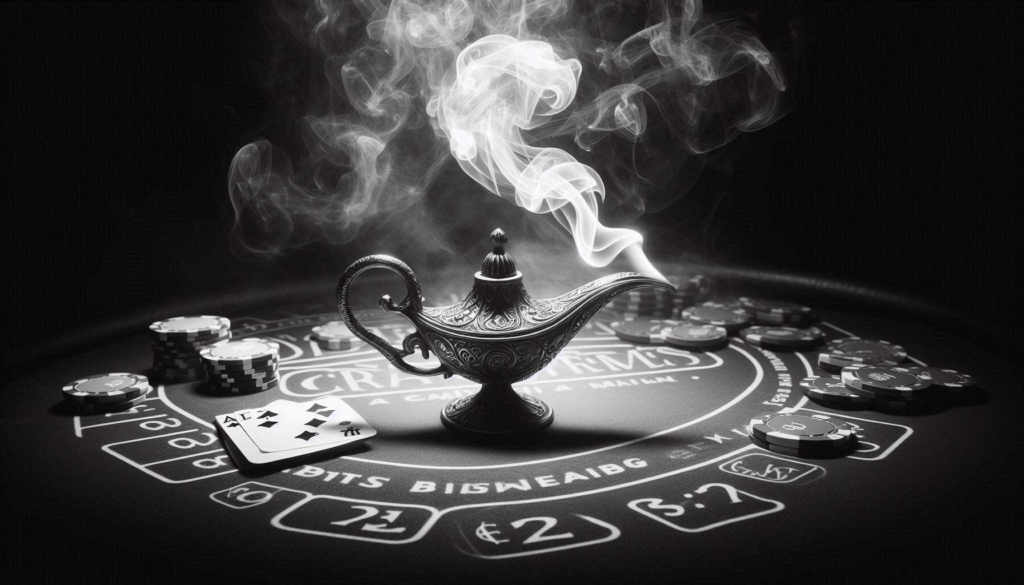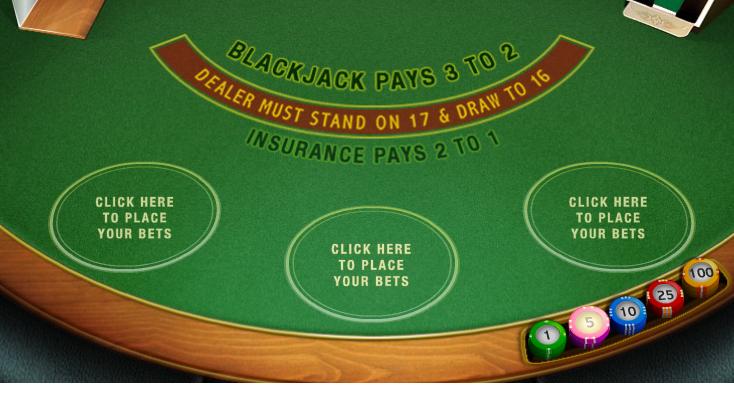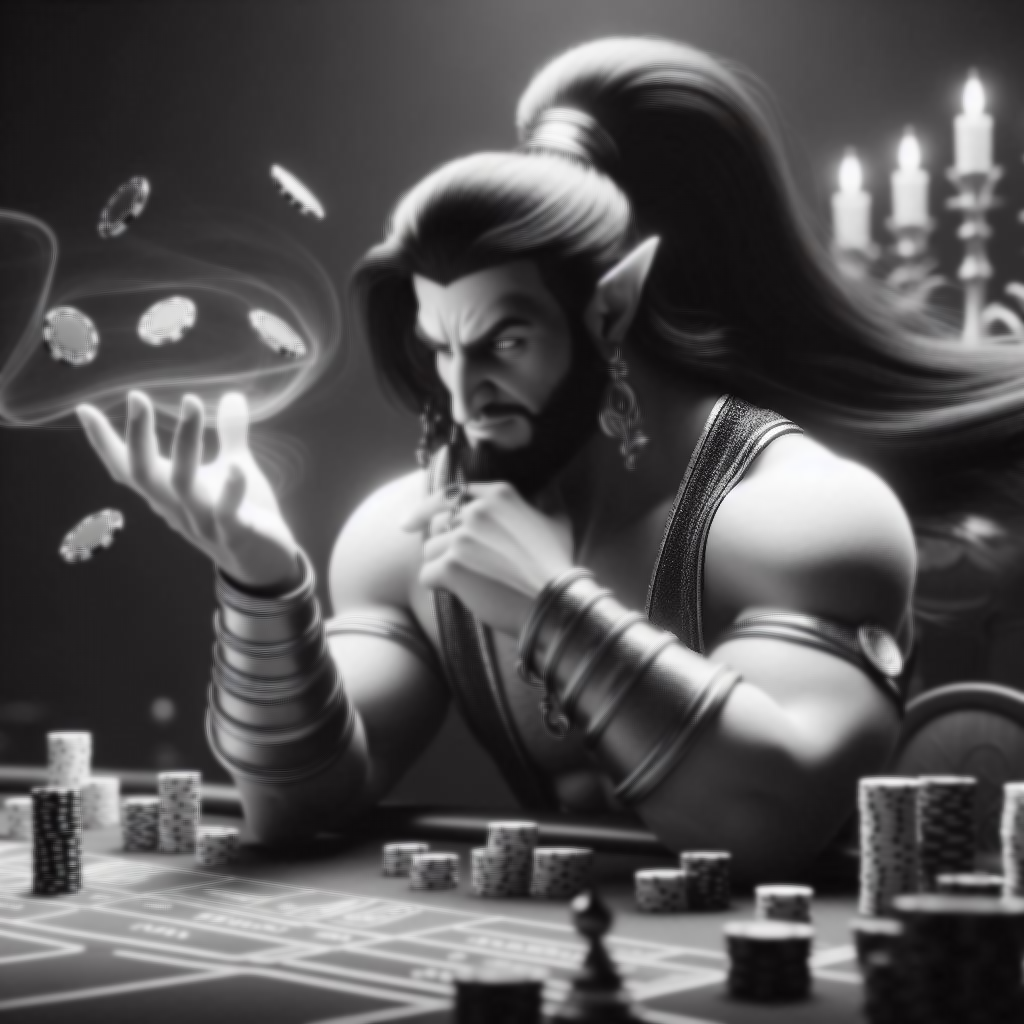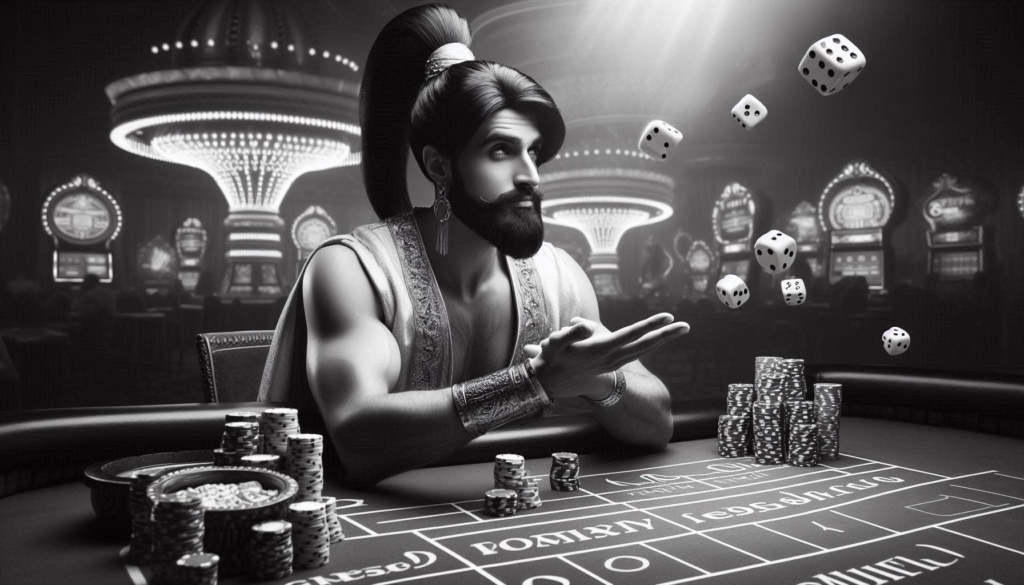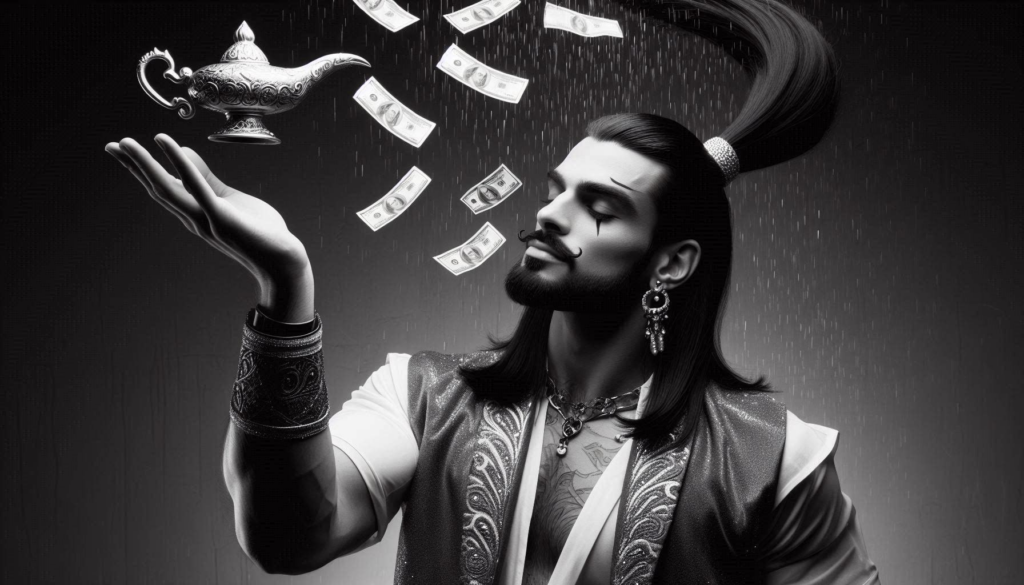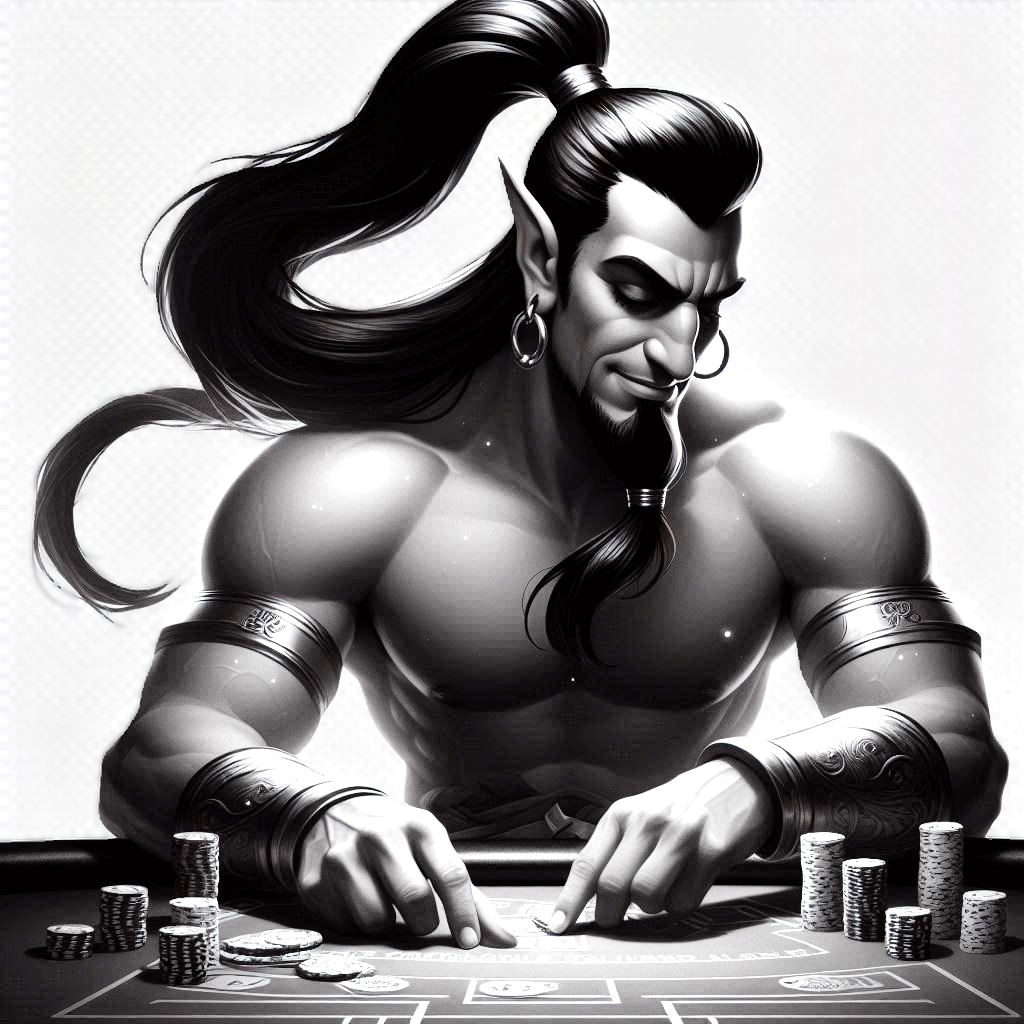
Blackjack Basic Strategy actually refers to the blackjack strategy developed in 1956 by four mathematicians. Roger Baldwin, Herbert Maisel, Wilbert E. Cantey and James P. McDermott were the first group of people to publish their probability based theory on Blackjack “The optimum strategy in Blackjack”. This was published in the Journal of the American Statistical Association and has since been tested, refined and modified through computer simulations. Basic blackjack strategy should be the starting point for every optimal game and is used by all professional Blackjack players. Before diving in, it’s a good idea to start with an understanding of blackjack terminology. Then revisit Genie’s basic strategy guide.
Using Basic Blackjack Strategy
Basic Blackjack Strategy is easy to use. Essentially, it suggests the most appropriate action depending on every possible outcome. While initially basic strategy may appear complicated, it’s actually quite simple. Nearly 50% of the hands should always be played the same way while there are a number of exceptions that should be played in one of two ways depending on what up-card the dealer is showing.
Genie’s shortcuts to Basic Blackjack Strategy
When to stand (“Pat hands”):
- Always stand on 19 or higher.
- Always stand on hard 17 and hard 18 (except for a pair of nines as per the splitting strategy below).
When to hit:
- Always hit on a hand of 8 or less (except for pairs as per the suggestion below).
Splitting/ What to do when you have pairs:
- Hands of A,A or 8,8 should always be split.
- Hands of 5,5 or 10,10 should never be split.
- 9,9: Split this hand when the dealers up card is 2-6 or 8-9. Stand against 7, 10 and Ace.
- 7,7: Split these when the dealers up card is 2-7. Hit against 8 or better.
- 6,6: Split these against 2-6. Hit against 7 or better.
- 4,4: Slit against 5 and 6 and hit against anything better.
Doubling down:
There are two main types of doubling situations- hands that total 9, 10 or 11, and soft hands that aren’t “ pat”(don’t require any action- see when to stand). At all times the dealer’s up card will determine whether a hand should be doubled or whether you should hit. Standing is never an option where there is an option for a double. In these instances you should always hit or double.
- 11: Double against everything except an Ace. Hit against the Ace.
- 10: Double against everything except 10 and Ace. Hit against 10 and Ace.
- 9: Double against 3-6. Hit against everything else.
- Soft hands: Soft hands that aren’t pat are always hit or doubled. The only exception is soft 18.
- A,7: Double a soft 18 against 3-6. Stand against 2, 7 or 8. Hit against 9 or better.
- A,6: Double against 2-6 and hit against everything else.
- A,5 and A,4: Double against 4,5 and 6. Hit against everything else.
- A,2 and A,3: Double against 5 and 6 and hit in all other situations.
- Stiff hands (hard hands between 12-16): Always hit a stiff hand when a dealer has 7-A. Never hit a stiff hand when a dealer has 2-6 except for the below:
- 16: surrender against 9,10 or Ace or hit if surrender isn’t allowed
- 15: surrender against 10, hit if surrender isn’t allowed
- 12: hit against a 2 or 3
Genie says: All doubling down situations are positive-expectation situations so ensure to optimise your game by doubling down where possible.
Genie recommends
- Global sportsbook & casino.
- Punt with over 20 cryptocurrencies + fiat.
- Frequent promotions & cashback offers.
- Global availability & language support.
- Over 3,000 casino games & live casino.
Find out more

Blackjack Basic Strategy Charts
Our basic Blackjack strategy chart has been optimised for the most common combination of rules (both online and offline), meaning that it is expected that:
- There will be multiple decks (four or more).
- The dealer stands on soft 17.
- Doubling after splits is possible.
- Doubling on any two cards is possible.
Download our Basic Strategy Guide in PDF or see below
Genie says: Remember that depending on the Blackjack variant you are playing, certain options may not be available so it will be important to make yourself aware of the rules so that you can ensure you achieve the highest advantage possible.
| Basic Strategy for Hard hands (hands without an Ace)
NC = Stand, h = hit, DB = Double (hit if double not possible), sr = surrender (hit if surrender not possible). | |||||||||||
|
Dealer’s upcard | |||||||||||
|
Your hand |
2 |
3 |
4 |
5 |
6 |
7 |
8 |
9 |
10 |
A | |
|
17-21 |
NC |
NC |
NC |
NC |
NC |
NC |
NC |
NC |
NC |
NC | |
|
Hard 16 |
NC |
NC |
NC |
NC |
NC |
h |
h |
sr |
sr |
sr | |
|
Hard 15 |
NC |
NC |
NC |
NC |
NC |
h |
h |
h |
sr |
h | |
|
Hard 14 |
NC |
NC |
NC |
NC |
NC |
h |
h |
h |
h |
h | |
|
Hard 13 |
NC |
NC |
NC |
NC |
NC |
h |
h |
h |
h |
h | |
|
Hard 12 |
h |
h |
NC |
NC |
NC |
h |
h |
h |
h |
h | |
|
11 |
DB |
DB |
DB |
DB |
DB |
DB |
DB |
DB |
DB |
h | |
|
10 |
DB |
DB |
DB |
DB |
DB |
DB |
DB |
DB |
h |
h | |
|
9 |
h |
DB |
DB |
DB |
DB |
h |
h |
h |
h |
h | |
|
5 to 8 |
h |
h |
h |
h |
h |
h |
h |
h |
h |
h | |
| Basic Strategy for Soft hands (hands with an Ace)
NC = Stand, h = hit, DB = Double (hit if double not possible), sr = surrender (hit if surrender not possible). | |||||||||||
|
Dealer’s upcard | |||||||||||
|
Your hand |
2 |
3 |
4 |
5 |
6 |
7 |
8 |
9 |
10 |
A | |
|
Soft 19-21 |
NC |
NC |
NC |
NC |
NC |
NC |
NC |
NC |
NC |
NC | |
|
Soft 18 |
NC |
DBN |
DBN |
DBN |
DBN |
NC |
NC |
h |
h |
h | |
|
Soft 17 |
h |
DB |
DB |
DB |
DB |
h |
h |
h |
h |
h | |
|
Soft 16 |
h |
h |
DB |
DB |
DB |
h |
h |
h |
h |
h | |
|
Soft 15 |
h |
h |
DB |
DB |
DB |
h |
h |
h |
h |
h | |
|
Soft 14 |
h |
h |
h |
DB |
DB |
h |
h |
h |
h |
h | |
|
Soft 13 |
h |
h |
h |
DB |
DB |
h |
h |
h |
h |
h | |
| Basic Strategy for splitting pairs
NC = Stand, h = hit, DB = Double (hit if double not possible), sp = split. | |||||||||||
|
Dealer’s upcard | |||||||||||
|
Your hand |
2 |
3 |
4 |
5 |
6 |
7 |
8 |
9 |
10 |
A | |
|
A,A |
sp |
sp |
sp |
sp |
sp |
sp |
sp |
sp |
sp |
sp | |
|
10,10 |
NC |
NC |
NC |
NC |
NC |
NC |
NC |
NC |
NC |
NC | |
|
9,9 |
sp |
sp |
sp |
sp |
sp |
NC |
sp |
sp |
NC |
NC | |
|
8,8 |
sp |
sp |
sp |
sp |
sp |
sp |
sp |
sp |
sp |
sp | |
|
7,7 |
sp |
sp |
sp |
sp |
sp |
sp |
h |
h |
h |
h | |
|
6,6 |
h |
sp |
sp |
sp |
sp |
h |
h |
h |
h |
h | |
|
5,5 |
DB |
DB |
DB |
DB |
DB |
DB |
DB |
DB |
h |
h | |
|
4,4 |
h |
h |
h |
sp |
sp |
h |
h |
h |
h |
h | |
|
3,3 |
sp |
sp |
sp |
sp |
sp |
sp |
h |
h |
h |
h | |
|
2,2 |
sp |
sp |
sp |
sp |
sp |
sp |
h |
h |
h |
h | |
So, that’s a wrap to Genie’s guide to Basic blackjack strategy. Don’t step up to the table without memorising it, or you’ll leave some money at the table.
Next up, advanced blackjack strategy.
